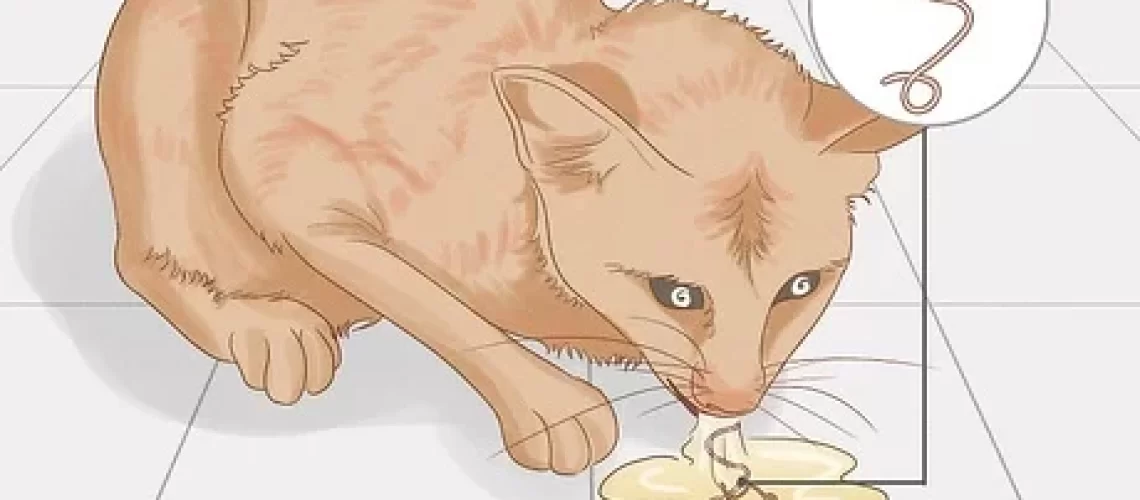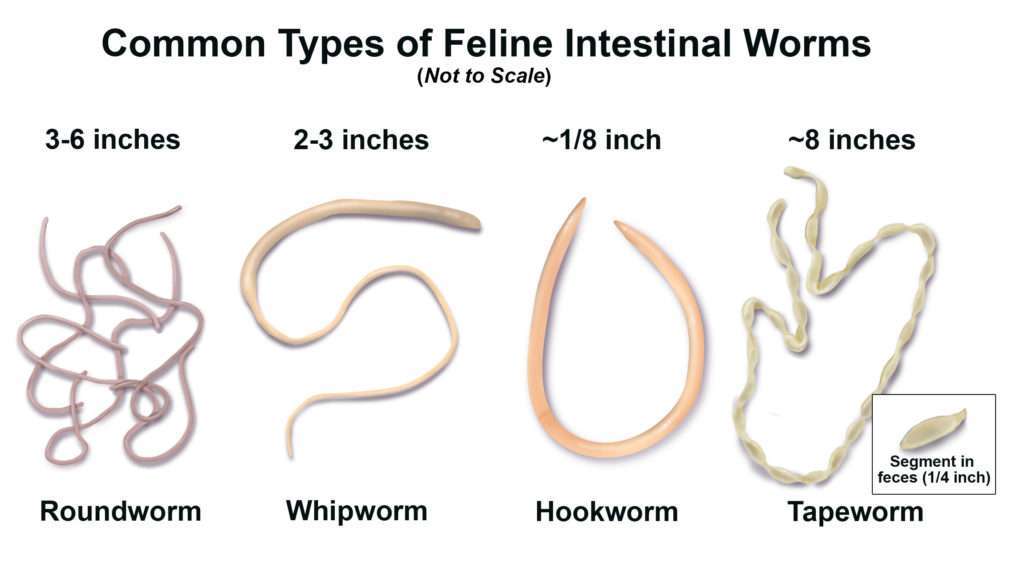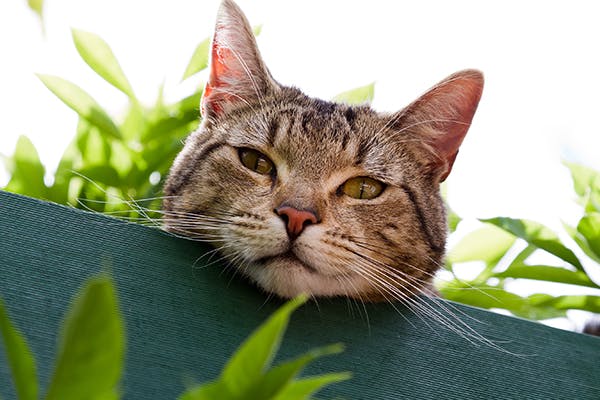Key Takeaways:
- Hookworms are common parasites in cats and can cause serious health issues if left untreated.
- Cats can become infected with hookworms through ingestion, skin contact, or transplacental transmission from mother to kittens.
- Common symptoms of hookworm infestation in cats include diarrhea, weight loss, anemia, and poor coat condition.
- Regular deworming and maintaining good hygiene practices can help prevent hookworm infestation in cats.
- If you suspect your cat has hookworms, it is important to consult a veterinarian for diagnosis and appropriate treatment options.
Are you ready to uncover the hidden world beneath your cat's paws? Prepare to embark on a journey into the mysterious realm of hookworms in cats, where these underground pests wreak havoc on our feline friends. By exploring this fascinating topic, you will not only gain valuable insights into the dangers these parasites pose but also acquire essential knowledge for safeguarding your beloved pet's health. So, let's dig deep and unearth the secrets of hookworms in cats together, shedding light on their impact and discovering effective ways to protect our furry companions. Get ready to be captivated by a subject that holds both intrigue and vital information for any responsible cat owner.
What are Hookworms and How They Affect Cats?
Understanding Hookworms
Hookworms are tiny parasites that can infect cats. They get their name because they have hook-like mouthparts that they use to attach themselves to the lining of the cat's intestines. Once attached, they feed on the blood of the cat, which can lead to anemia and other health problems.
The Impact on Cats
When a cat is infected with hookworms, it can cause various health issues. The most common symptoms include diarrhea, weight loss, and weakness. In severe cases, hookworms can even cause death in kittens or older cats with weakened immune systems.
It's important to detect and treat hookworm infections early to prevent complications. Regular check-ups with a veterinarian can help ensure your cat's health and well-being.
How Cats Get Infected with Hookworms
Ingestion of Infective Larvae
Cats can get infected with hookworms by ingesting the larvae present in contaminated soil or feces. This can happen when cats roam outdoors or come into contact with contaminated areas.
Once inside the cat's body, the larvae migrate through different organs until they reach the small intestine, where they mature into adult worms and start reproducing.
Transmission from Mother to Kittens
Kittens can also acquire hookworm infections from their mothers. The larvae can be passed through the placenta before birth or through the mother's milk during nursing.
This is why it is crucial for pregnant cats to receive proper veterinary care and for kittens to be dewormed regularly as part of their healthcare routine.
Can Humans Catch Hookworms from Infected Cats?
No, humans cannot catch hookworms directly from infected cats. The species of hookworms that infect cats are not the same as those that affect humans.
However, it is still important to practice good hygiene when handling cats or cleaning their litter boxes to prevent the spread of other parasites or diseases that can be transmitted between animals and humans.
Symptoms of Hookworms in Cats
- Diarrhea
- Weight loss
- Anemia (pale gums)
- Coughing (in cases where larvae migrate through the lungs)
- Lethargy and weakness
If you notice any of these symptoms in your cat, it is essential to consult a veterinarian for proper diagnosis and treatment.
Preventing Hookworm Infections in Cats
To prevent hookworm infections in cats, there are several measures you can take:
- Keep your cat indoors to minimize exposure to contaminated soil or feces.
- Maintain a clean litter box by regularly scooping and changing the litter.
- Practice good personal hygiene by washing hands thoroughly after handling cats or cleaning litter boxes.
- Treat your cat with preventive medications recommended by your veterinarian.
Treatments for Cats with Hookworm Infestations
If your cat is diagnosed with a hookworm infestation, your veterinarian will prescribe appropriate treatment. Treatment usually involves deworming medication that kills the adult worms and helps eliminate any larvae present in the cat's body.
In some cases, additional treatments may be necessary to address complications such as anemia or other health issues caused by the hookworm infection.
The Underground Pests: Why are They Called Hookworms?
Hookworms earned their nickname "underground pests" because they live and thrive in soil, particularly warm and humid environments. They have a unique hook-like mouthpart that allows them to latch onto the intestinal lining of their host, including cats.
These tiny parasites can cause significant damage to their hosts by feeding on blood and nutrients. The name "hookworm" perfectly describes their appearance and behavior, making it easier for experts to identify and study these parasites.
In conclusion, hookworms are a common and harmful parasite that can affect cats. It is important for cat owners to be aware of the signs and symptoms, as well as take preventive measures to keep their furry friends safe and healthy.
Where do hookworms come from in cats?
Cats can become infected with hookworms in a few different ways, such as drinking water that contains the larvae, consuming animals or rodents that are infected, or when the larvae penetrate their skin, typically through the feet when walking on contaminated soil, sand, or litter. Kittens can also contract hookworms when they drink their mother's milk.
Where do hookworms live in cats?
Hookworms, like tapeworms and roundworms, are parasites found in the digestive system of cats (or dogs). These worms attach themselves to the intestine and feed on the cat's blood. The eggs are then released into the digestive tract and are expelled in the cat's feces, contaminating the environment.
Do hookworms live in the ground?
Eggs of hookworms are expelled in the feces of individuals who are infected. When infected individuals defecate outdoors or use their feces as fertilizer, the eggs are deposited in the soil. Over time, these eggs develop and hatch, releasing immature worms known as larvae.
How do you treat ground hookworms?
To eliminate Hookworms from a pen or yard, it is necessary to completely remove all soil up to a depth of at least one foot. The area should then be treated with lime or bleach, and new sterilized soil should be put in its place.
Are hookworms hard to get rid of in cats?
Treating feline hookworm infection is fortunately easy, safe, and affordable. By giving a deworming medication known as an anthelmintic, the adult hookworms are effectively eliminated.
How did hookworms get in my yard?
Hookworm is spread through the passage of eggs in the feces of an infected individual. If the infected person defecates in outdoor areas such as gardens or fields or if their feces is used as fertilizer, the eggs are deposited in the soil. The eggs can then develop and hatch, releasing immature worms known as larvae.
















